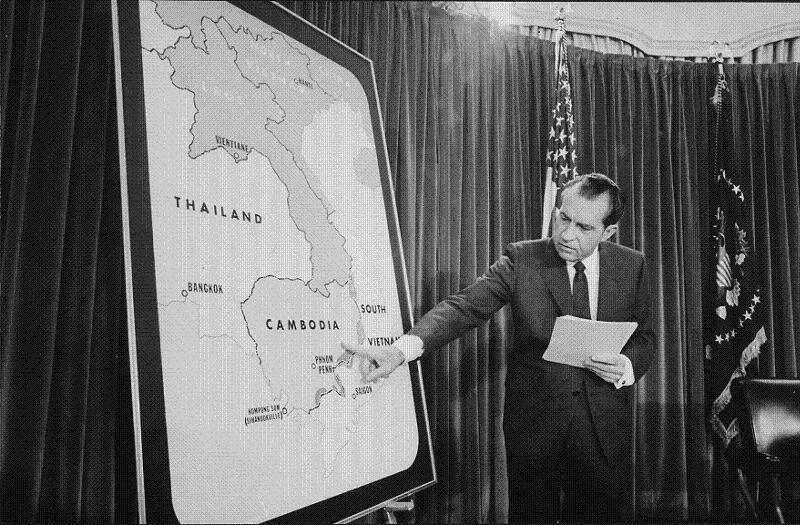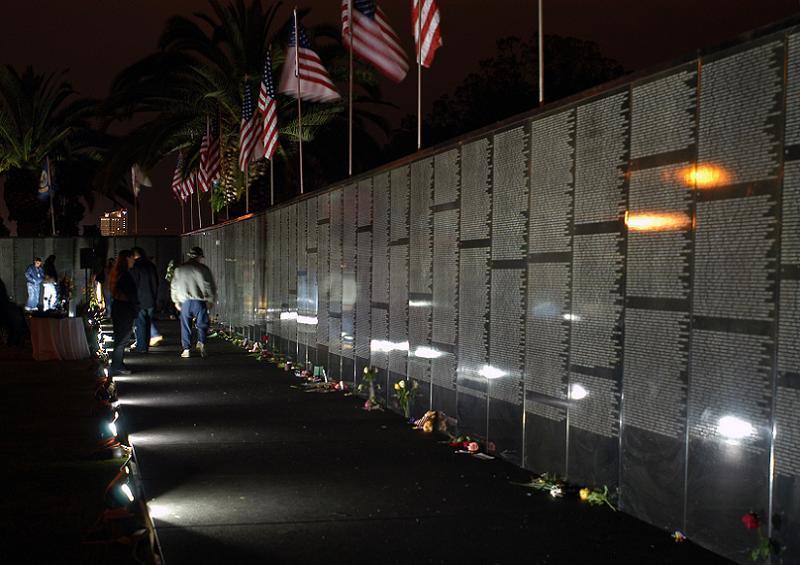Repercussions

Under Nixon’s presidency, he carried out covert bombing campaigns in Laos and Cambodia. Image Source: Wikipedia
Following the election, the Nixon Administration pursued a muddled Vietnam policy. Tough talk and heavy bombing mixed with back-channel negotiations and violent espionage made a hash out of America’s war effort. Henry Kissinger, elevated first to the post of National Security Advisor and then to Secretary of State, oversaw a covert expansion of the war into Laos and Cambodia, as well as a secret bombing campaign that laid waste to Indochina and was run over the telephone line between Kissinger’s office in Washington and the U.S. embassy in Phnom Penh. The mass slaughter aided in the rise of the Khmer Rouge in 1975, and the famine that killed millions immediately after.
Kissinger’s Vietnam policy ended in 1975, with American diplomats hanging from the skids of helicopters evacuating the Saigon embassy.

Part of the Vietnam Memorial Wall. Image Source: Wikimedia Commons
History is finished with all of the major players in this drama. Presidents Johnson and Nixon are dead, as are Spiro Agnew and Nguyen Van Thieu, who died in Boston, Massachusetts, in September 2001. Anna Chennault is still alive, aged 90, and lives a distinguished life in America. She has written several books, as well as chaired the boards of multiple nonprofits.
Henry Kissinger is, as of this writing, 92 years old and the author of at least 17 books. He is a prominent member of virtually every important foreign policy group in Washington, and his counsel is still sought as an expert in foreign affairs. He has been covered with honors and awards—most notably (and ironically) the Nobel Peace Prize, which his North Vietnamese counterpart refused—and has published his opinions in the Washington Post as recently as March 2014 as a thought leader on the Ukrainian crisis. Though his overseas travel is tightly constrained by potential war crimes indictments, particularly in South America, he remains unbothered in the United States, where there appears to be no serious threat to put him on trial for his crimes.
The Vietnam Memorial Wall complex in Washington DC hosts the names of every US serviceman who died in Vietnam. The names are listed alphabetically, indexed by date of loss. The wall records 58,195 American deaths, about 22,000 of which occurred after the Nixon campaign’s “October Surprise.” When peace finally came, in January 1973, the negotiated terms were substantially identical to what the positions had been in 1968.






